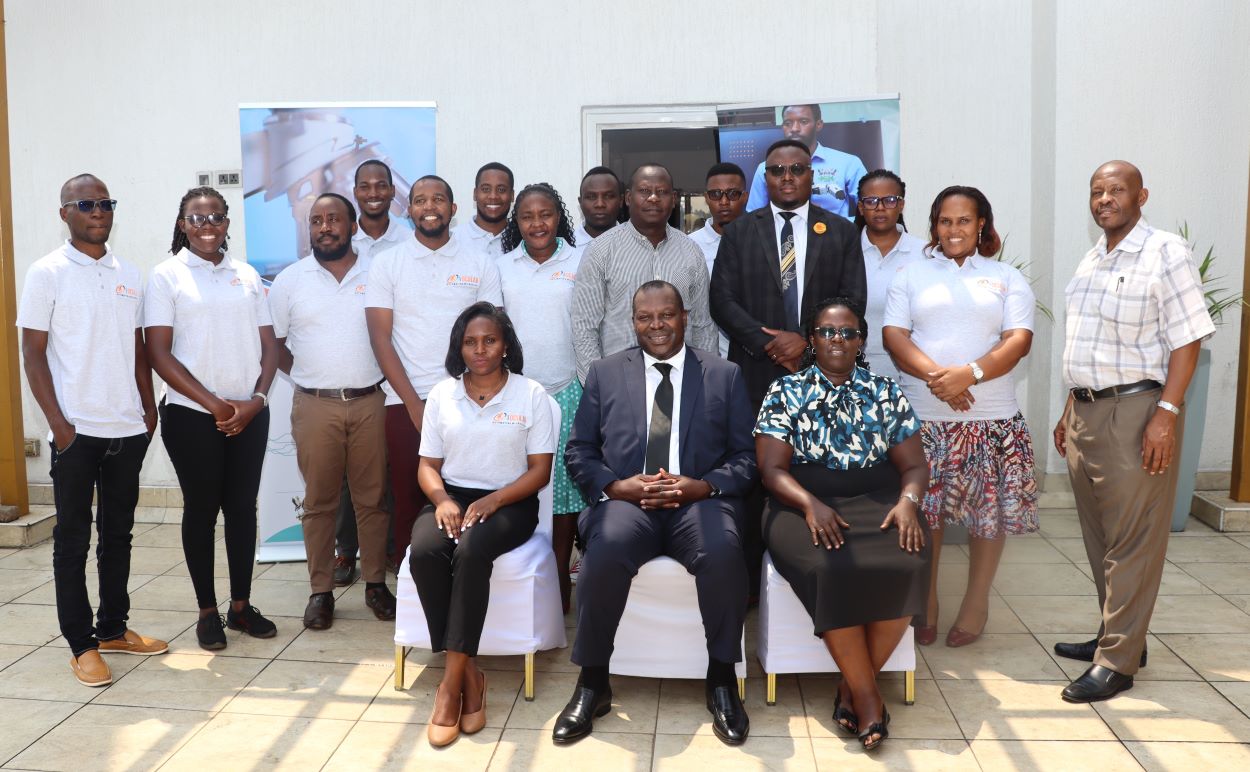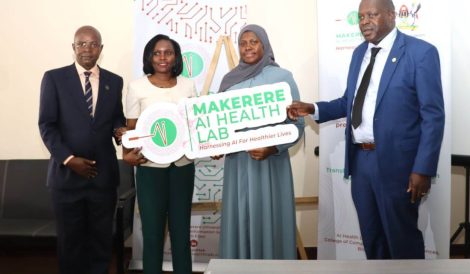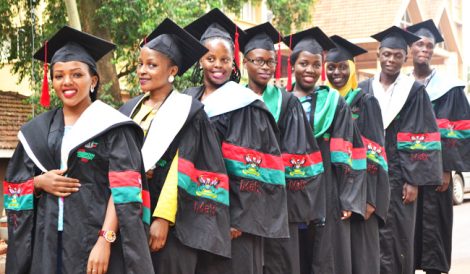Makerere University staff and partners working under the Ocular project on 24th January, 2024 converged at Golden Tulip Hotel in Kampala in a capacity building session.
The project team lead by Dr. Rose Nakasi convened the capacity building workshop to gear up, energise and motivate members to deliver to the project objectives as a team without leaving anyone behind.
Makerere University under its Artificial Intelligence Lab received a grant funding worth US$1,500,000 (approx UGX 5.5bn) from Google to support its Ocular project that is undertaking research on usage of Artificial Intelligence to enhance the diagnosis process of Malaria, Tuberculosis and Cervical Cancer in Uganda.
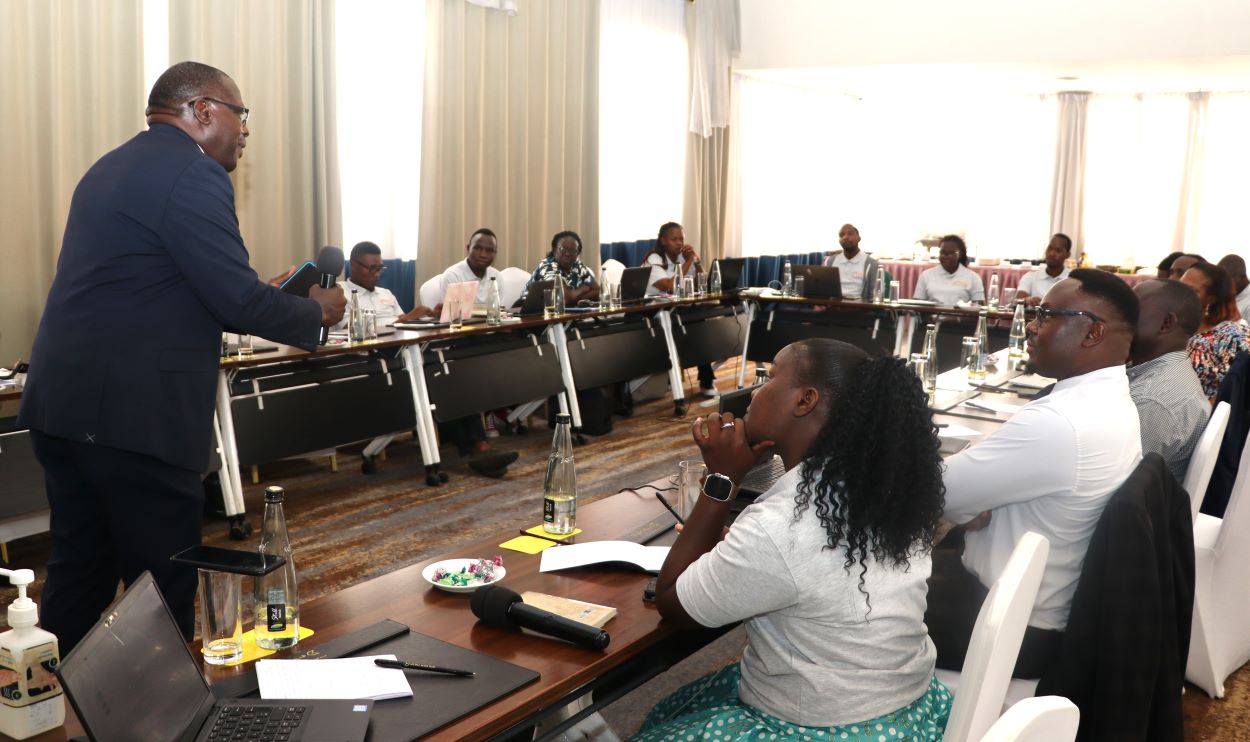
The project was officially launched on 13th September 2023 under the College of Computing and Information Sciences (CoCIS) in collaboration with the School of Public Health (MakSPH).
Being in its first phase, the Project leader Dr. Nakasi justified the need for building capacity for the team members, not only to remind them on their roles and expectations, but also build a team that understands one another.
“Because if we understand each other as a team, then we are able to give our best not just as an individual but to deliver on the objectives of the project as a team.
This capacity building workshop has enabled us to understand our roles, objectives of the project because as we work on different pieces of the project sometimes you may not know the bigger picture.
So this was to open up to all members what the project is all about and the objectives we are going to deliver to by bringing ourselves in one room to talk about the project and understand it on a deeper level”, Nakasi explained.
In her key message Dr. Nakasi stressed the need for teamwork.
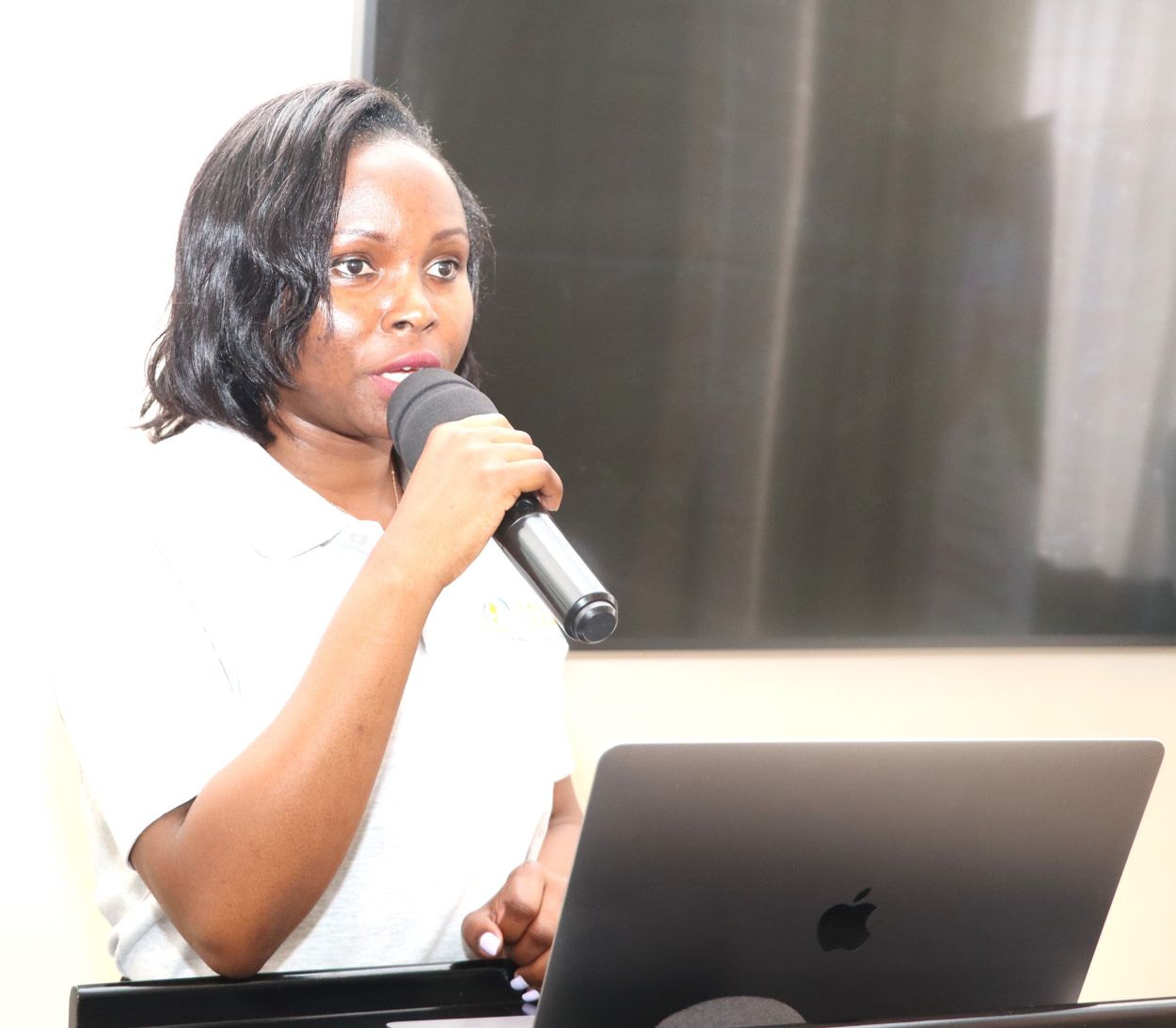
“Divided we fall, together we move. Our idea through this session is, we should not look at ourselves as individuals but in terms of the contributions on the team to achieve the overall objective. If we understand that from the go, then we can be able to move together to know how from each of our competencies can be able to support that overall project objective.
We have also got an opportunity to get to know each other, bond and through the different sessions and learnings, I believe each of us has picked one or two things to make us better as individuals but the overall goal is to make us better as a team” , She added
Dr. Nakasi presented the project overview and emphasised that the overall goal is benchmarking solutions to be scaled up to highly endemic Sub Saharan Africa by integrating AI for effective disease diagnosis and also inform policy on handling microscopy diagnosis among others.
In the first quarter, Nakasi reported that the project has recorded key milestones especially at the technical level.
The project team she said, embarked on the technical aspects to be able to understand the pipelines that are going to be the springboard to all the activities to be carried out. Machine learning according to the PI involves understanding the data, how it is collected, where is it going to be stored before going out in the field.
“So in the first phase of the technical project was on our plan to understand the data that is going to be our fuelling feature in our future development of the models in detection of Malaria, TB and Cervical Cancer.
The biggest part of our activities in the first quarter were to understand all aspects around data including data collection apparatus, the tools, the interfaces that are going to go out there and also remind ourselves on what data is available so that we learn insights that will guide us in the next phases of any data collection and new data collection protocol improvements out there”, She said.
The workshop was opened by the Principal, Prof. Tonny J Oyana who also doubled as facilitator on the aspect of Protocols and Ethics of Research.
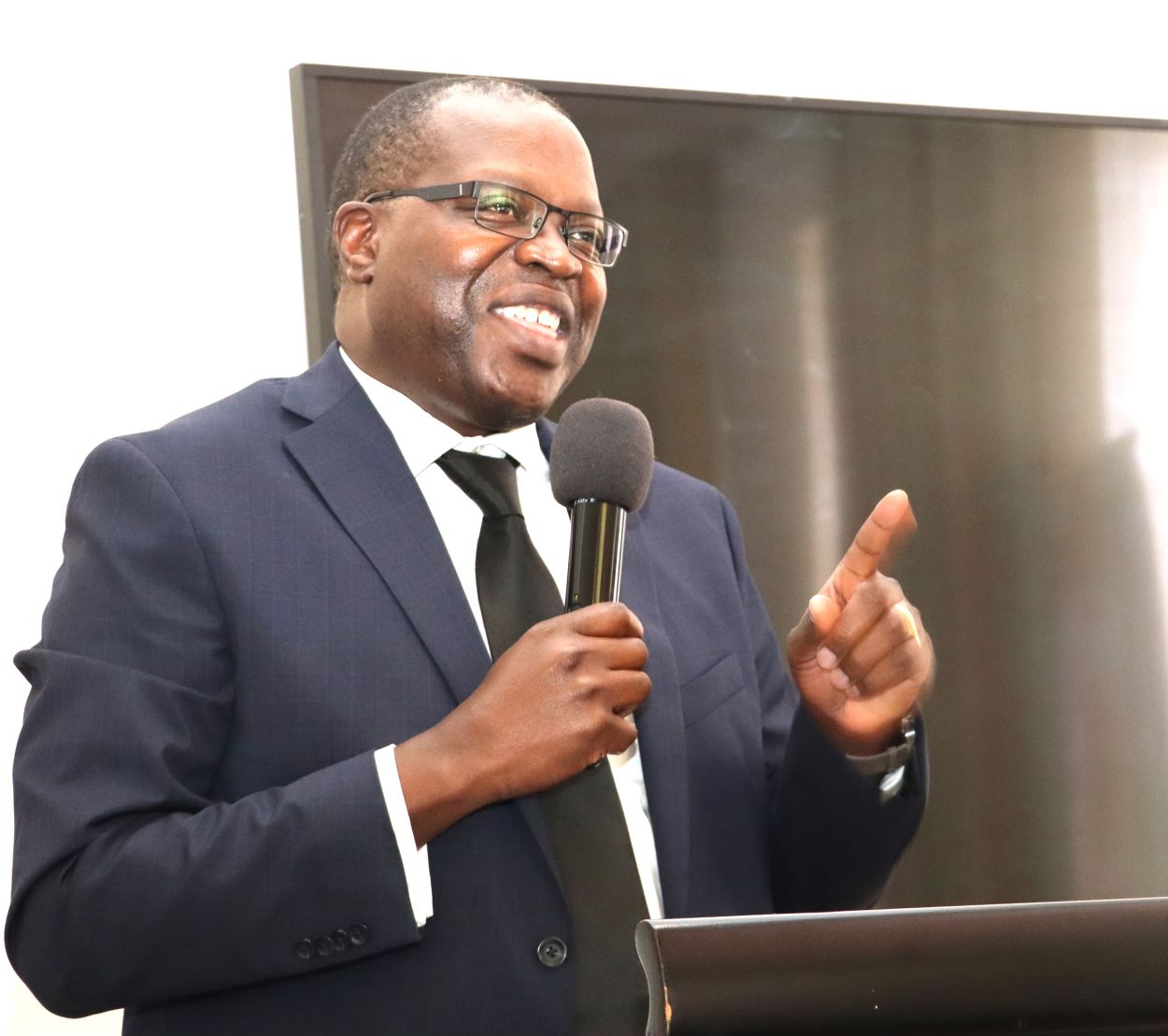
The Principal described the Ocular project as important to the college and Makerere imploring the team to perform to the expectations.
“Reputation depends on performance. Performance is critical in the current world. If you want to survive, we live in a place where you must work and perform. I want to encourage you please, don’t drop the pole, perform and excel”, Prof. Oyana Advised.
He made presentations on the sources of knowledge and methodologies for social and natural scientists. As scientists, he stressed, they have the obligation to tell the truth.
“The second obligation is family. They question you to be ethical. You have an obligation to scientists. It is dangerous to cook up things. It is better to be truthful. You have an obligation to be truthful because in long term it pays”, Prof Oyana stated.
To be responsible scientists, Oyana urged members to be competitive and productive, establish conduct for the laboratory and work, establish protocols, follow scientific evidence, define research need and pursue it, create and follow robust protocols among others.
Overall, the Professor advised the team to contribute to the body of knowledge and specific policy and strive to encourage and mentor young researchers.
The workshop was also facilitated by the Ag. Director, Directorate of Human Resources represented by Mr. Julius Lebo. Mr. Lebo presented on Organisational behaviour and code of conduct at the workplace.
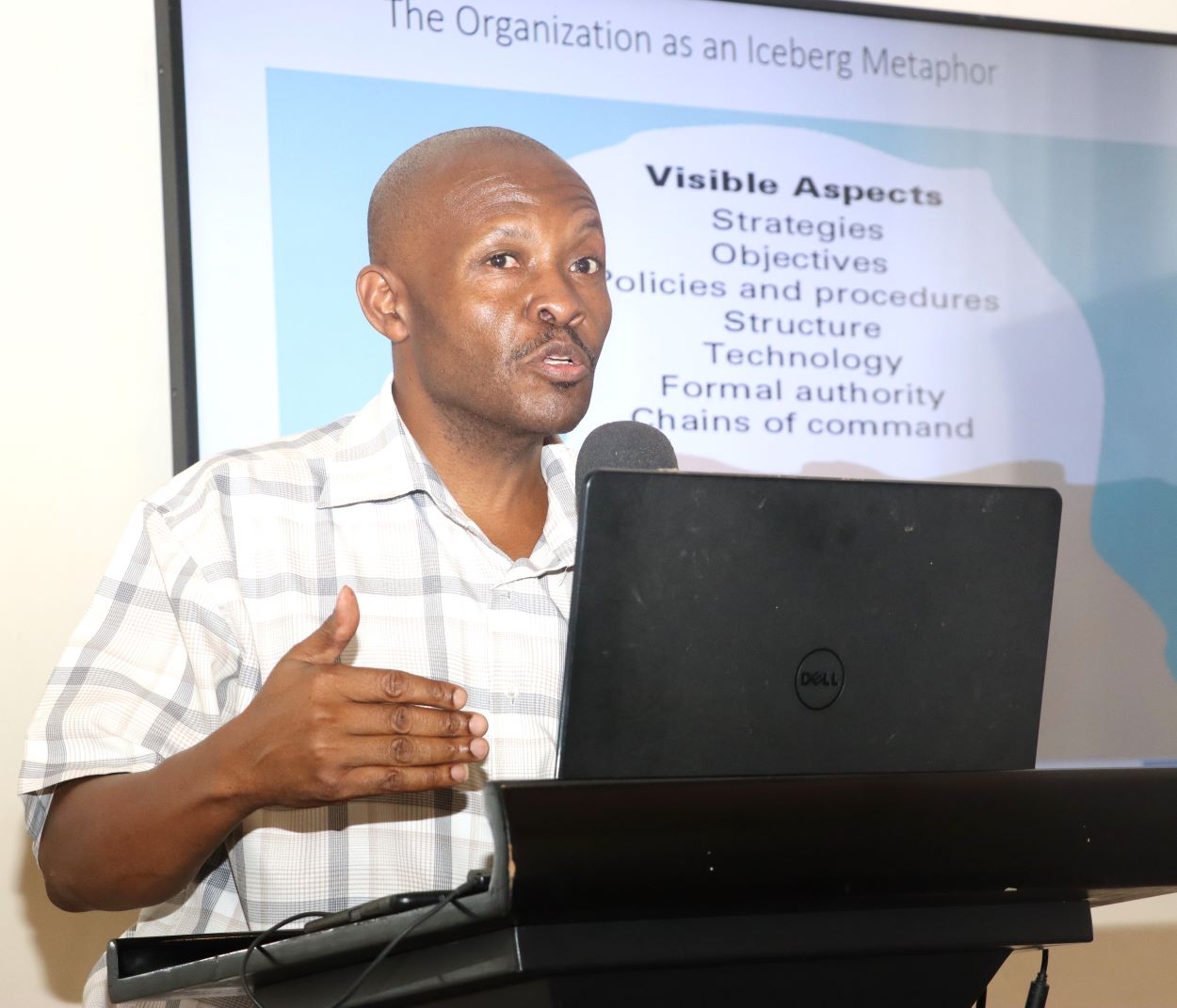
Lebo informed the project team that they are on the project because they have the capacity to solve a problem. While solving the problem, he said, they are expected to achieve certain goals and behave in a certain way.
Former Deputy Principal, Assoc. Prof. Agnes Rwashaya presented on Work – life balance. As career men and women, wives and husbands also engaged in social and financial and community activities, Rwashaya provided tips on the need for members to know who they are and how to get time to balance the wheel of life.
“With all expectations, it is important to do time management and balance your time because you have to deliver. Even if you are an office worker, find time for teams and networking, help and support one another and also mind about your health, saving finances. There is increased instructions from social media. You need to be focuses to deliver project based deliverables”. She said
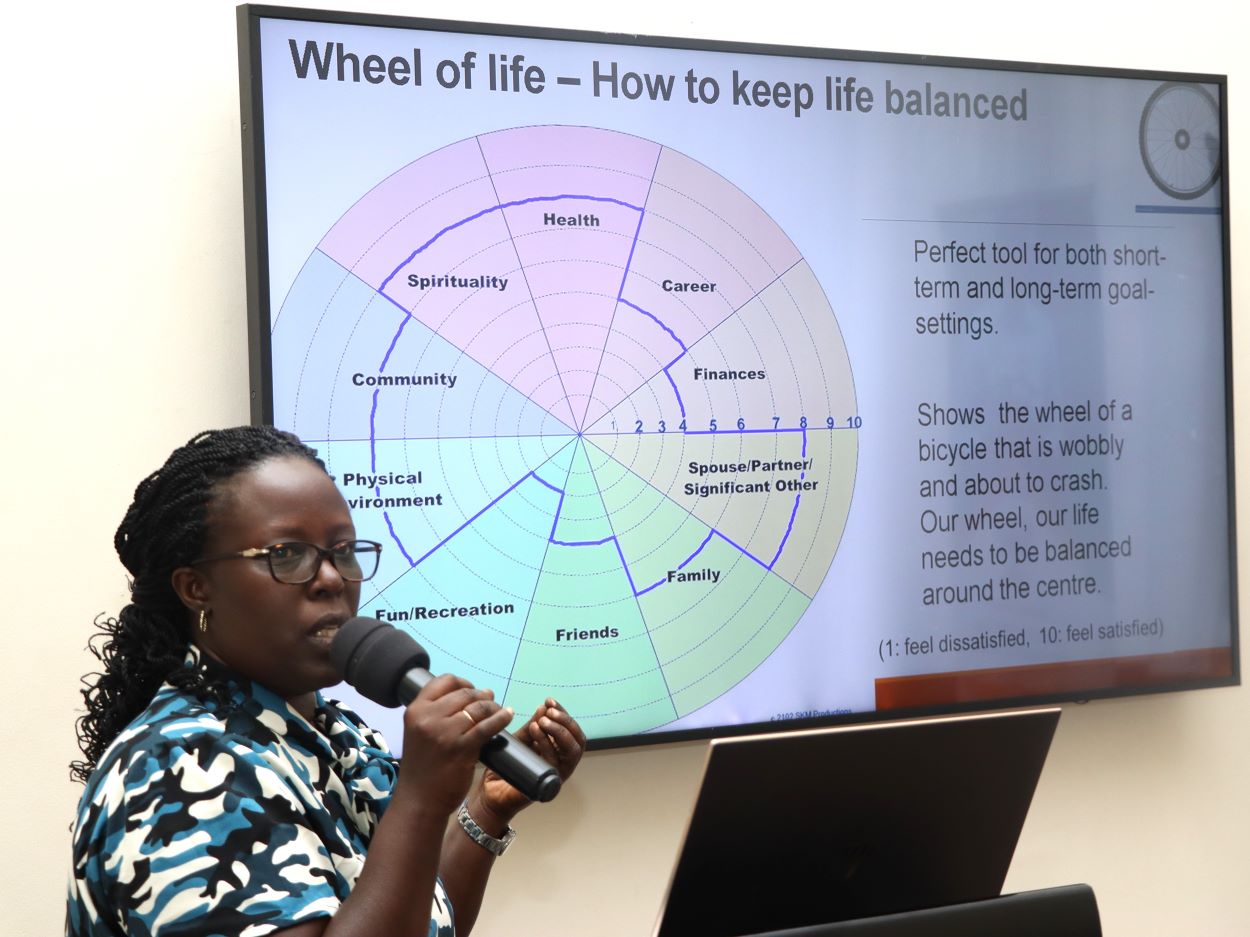
She advised project supervisors to look out for people, motivate them, provide right tools, help interact on things that relate to day to day life.
She provided tips on balancing the wheel of life, managing remote teams, improving productivity, time management and how to keep life balanced among others.
The day was crowned by the Team Building Session by Eugene. Eugene stressed that there is no “I” in Team. It is always “We”.
“When you are in a place and you leave, and there is no gap created, then, you are a good team leader and manager”, he said
He said, team means having one common goal and as Ocular project team, they are expected to have a working product by 2026. He emphasised the need for members to learn to work together and know when to speak certain things.
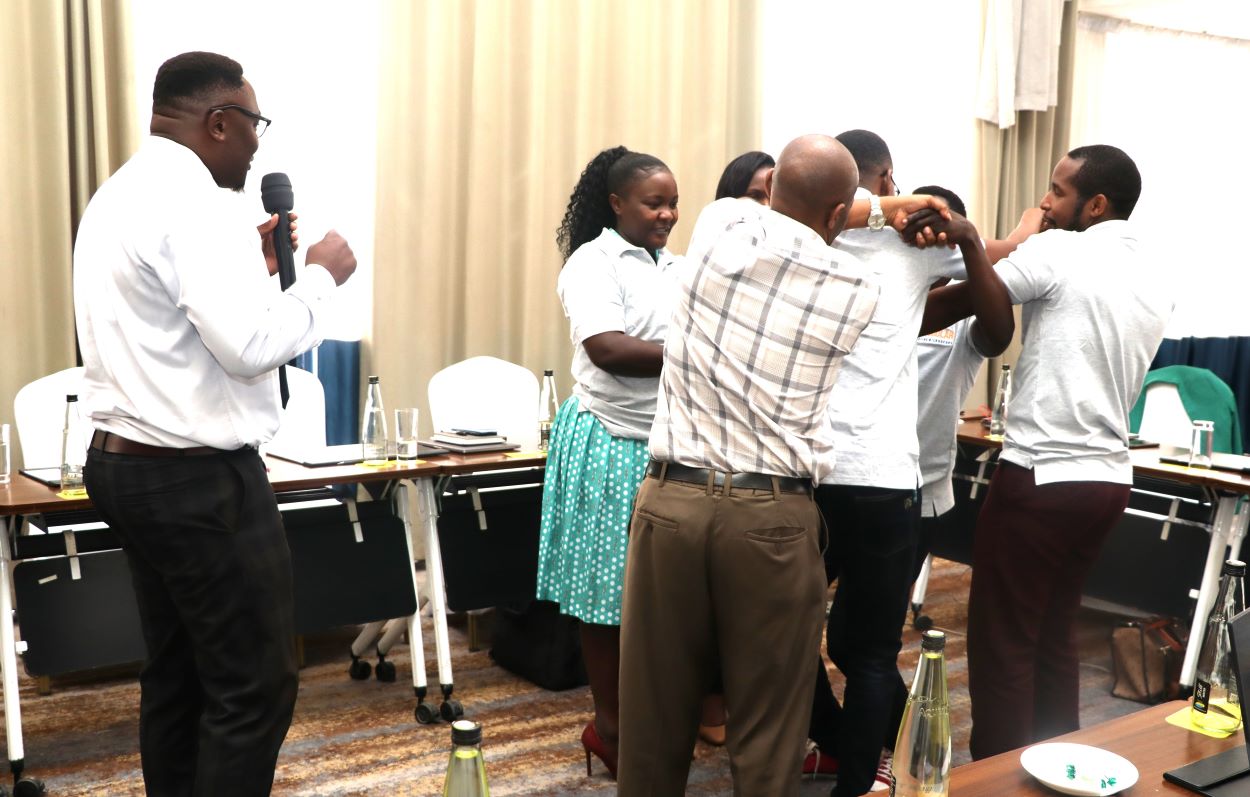
Eugene presented on what entails team building, why teams are important, how teams work best, characteristics of a good team, a fully functional team and winded up with two team building exercises making a circle without untangling hands and the blind-folder game that promotes listening and leadership skills.
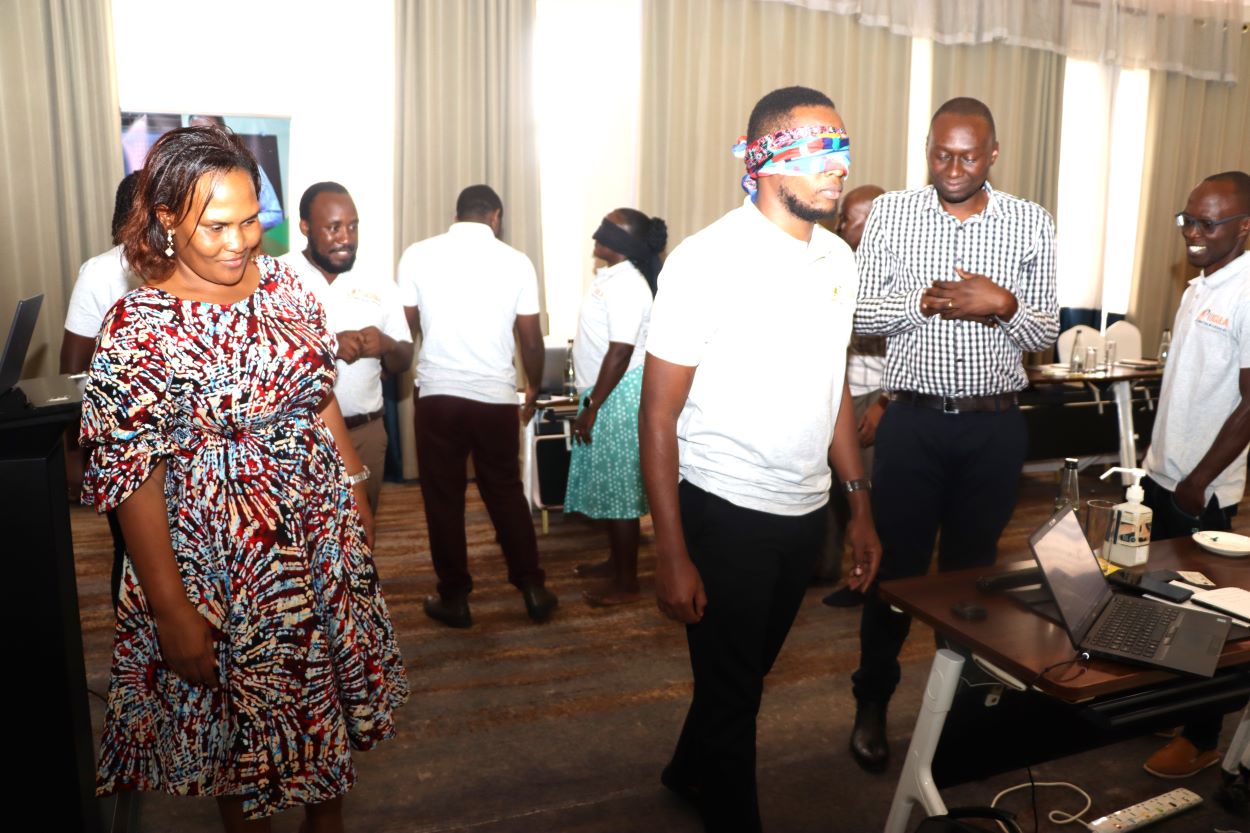
By Jane Anyango
Principal Communication Officer CoCIS.

